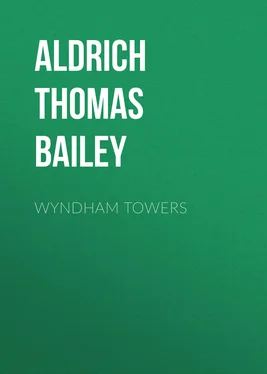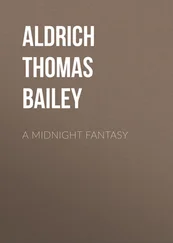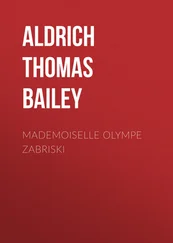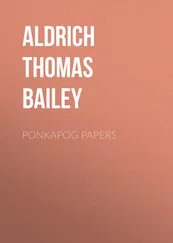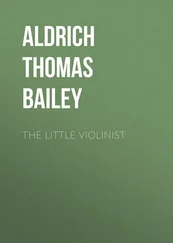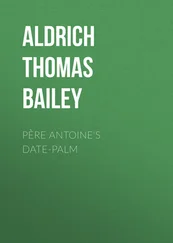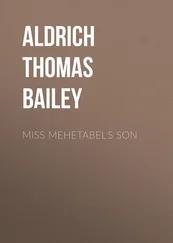And dinted shields of Wyndhams gone to grace—
At Poitiers this one, this at Agincourt,
That other on the sands of Palestine:
A breed of fierce man-slayers, sire and son.
Of these seemed Richard, with his steel cross-bow
Killing the doves in very wantonness—
The gentle doves that to the ramparts came
For scattered crumbs, undreamful of all ill.
Each well-sent dart that stained a snowy breast
Straight to her own white-budding bosom went.
Fled were those summers now, and she had passed
Out of the child-world of vain fantasy
Where many a rainbow castle lay in ruin;
But to her mind, like wine-stain to a flask,
The old distrust still clung, indelible,
Holding her in her maidhood’s serious prime
Well pleased from his cold eyes to move apart,
And in her humble fortunes dwell secure.
Indeed, what was she?—a poor soldier’s girl,
Merely a tenant’s daughter. Times were changed,
And life’s bright web had sadder colors in ‘t:
That most sweet gentle lady—rest her soul!—
Shrunk to an epitaph beside her lord’s,
And six lines shorter, which was all a shame;
Gaunt Richard heir; that other at earth’s end,
(The younger son that was her sweetheart once,)
Fighting the Spaniards, getting slain perchance;
And all dear old-time uses quite forgot.
Slowly, unnoted, like the creeping rust
That spreads insidious, had estrangement come,
Until at last, one knew not how it fell,
And little cared, if sober truth were said,
She and the father no more climbed the hill
To Twelfth Night festival or May-day dance,
Nor commerce had with any at The Towers.
Yet in a formless, misty sort of way
The girl had place in Wyndham’s mind—the girl,
Why, yes, beshrew him! it was even she
Whom his soft mother had made favorite of,
And well-nigh spoiled, some dozen summers gone.
Perhaps because dull custom made her tame,
Or that she was not comely in the bud,
Her sweetness halting like a tardy May
That wraps itself in mist, and seems not fair,
For this or finer reason undivined,
His thought she touched not, and was glad withal
When she did note how others took his eye
And wore rue after. Thus was her white peace
Undarkened till, it so befell, these two
Meeting as they a hundred times had met
On hill-path or at crossing of the weir,
Her beauty broke on him like some rare flower
That was not yesterday. Ev’n so the Spring
Unclasps the girdle of its loveliness
Abruptly, in the North here: long the drifts
Linger in hollows, long on bough and briar
No slight leaf ventures, lest the frost’s keen tooth
Nip it, and then all suddenly the earth
Is nought but scent and bloom. So unto him
Griselda’s grace unclosed. Where lagged his wit
That guessed not of the bud that slept in stem,
Nor hint had of the flower within the bud?
If so much beauty had a tiger been,
‘T had eaten him! In all the wave-washed length
Of rocky Devon where was found her like
For excellence of wedded red and white?
Here on that smooth and sunny field, her cheek,
The hostile hues of Lancaster and York
Did meet, and, blending, make a heavenly truce,
This were indeed a rose a king might wear
Upon his bosom. By St. Dunstan, now,
Himself would wear it. Then by seeming chance
Crossed he her walks, and stayed her with discourse
Devised adroitly; spoke of common things
At first—of days when his good mother lived,
If ‘t were to live, to pass long dolorous hours
Before his father’s effigy in church;
Of one who then used often come to hall,
Ever at Yule-tide, when the great log flamed
In chimney-place, and laugh and jest went round,
And maidens strayed beneath the mistletoe,
Making believe not see it, so got kissed—
Of one that joined not in the morrice-dance,
But in her sea-green kirtle stood at gaze,
A timid little creature that was scared
By dead men’s armor. Nought there suffered change,
Those empty shells of valor grew not old,
Though something rusty. Would they fright her now
Looked she upon them? Held she in her mind—
‘T was Spring and loud the mavis piped outside—
The day the Turkish helmet slipped from peg,
And clashing on the floor, congealed her blood
And sent both hands to terror-smitten eyes,
She trembling, ready to yield up the ghost?
Right merry was it! Finally he touched
On matters nearer, things she had foreboded
And this one time must needs lend hearing to,
And end so sorry business ere woe came,
Like a true maid and honest, as she was.
So, tutoring the tremble on her lip
And holding back hot tears, she gave reply
With such discretion as straight tied his tongue,
Albeit he lacked not boldness in discourse:
“Indeed, indeed, sir, you speak but in jest!
Lightly, not meaning it, in courtier-way.
I have heard said that ladies at the Court—
I judge them not!—have most forgiving ears,
And list right willingly to idle words,
Listen and smile and never stain a cheek.
Yet not such words your father’s son should use
With me, my father’s daughter. You forget
What should most precious be to memory’s heart,
Love that dared death; and so, farewell.” Farewell
It was in sooth; for after that one time,
Though he had fain with passion-breathed vows
Besieged that marble citadel her breast,
He got no speech of her: she chose her walks;
Let only moon and star look on the face
Конец ознакомительного фрагмента.
Текст предоставлен ООО «ЛитРес».
Прочитайте эту книгу целиком, на ЛитРес.
Безопасно оплатить книгу можно банковской картой Visa, MasterCard, Maestro, со счета мобильного телефона, с платежного терминала, в салоне МТС или Связной, через PayPal, WebMoney, Яндекс.Деньги, QIWI Кошелек, бонусными картами или другим удобным Вам способом.
